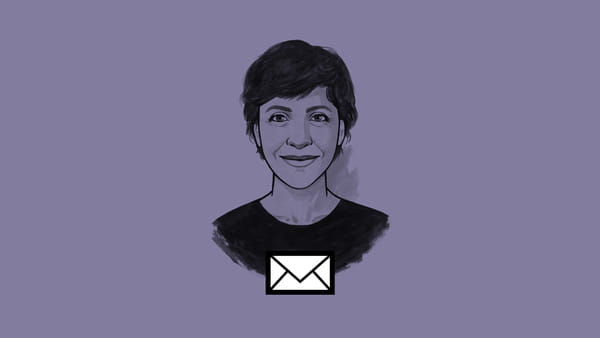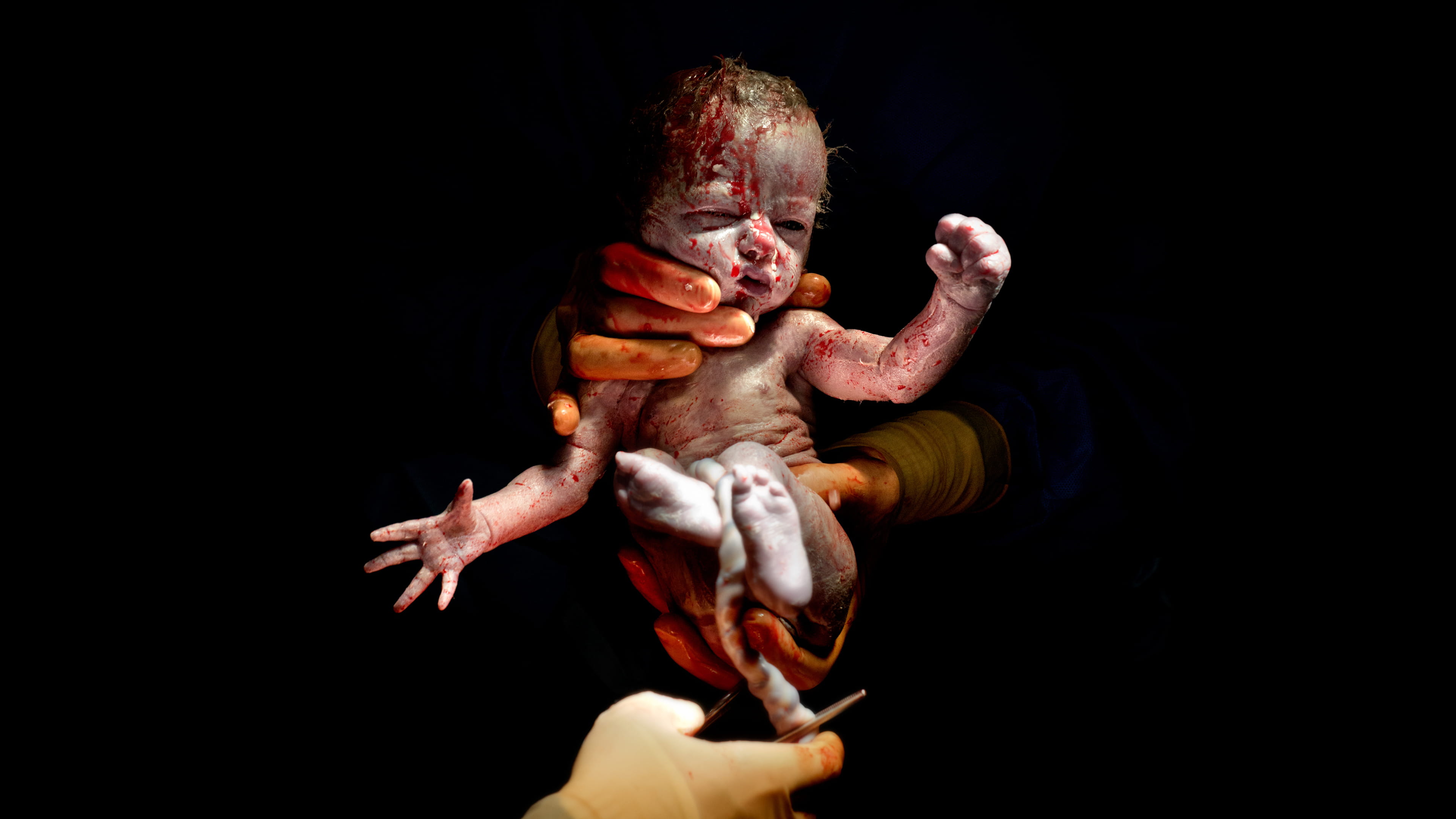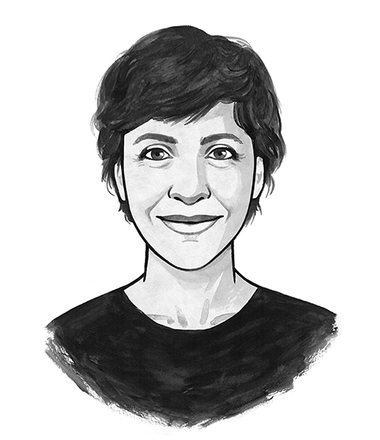The boy was two years old when his mother disappeared from his life.
Struggling to recover from the birth of a younger son, she constantly went in and out of hospital. Without her, the boy relied on his eldest sister, 12 at the time, who bathed her four younger siblings, fed them, tucked them in at night.
The boy learned to fear his father, the only adult in the household, from a very young age. He spent long hours away from home, working in real estate. On the rare occasions he was present physically, he was absent emotionally. He thought children were nuisances who needed to be trained to obey. Boys in particular, he believed, had to be treated sternly because emotions could corrupt them.
Like any toddler, the boy needed play time to discover the world and his carers’ attention to thrive and develop. But when he cried, he was scolded or, worse, ignored. The person the boy needed the most was the one he was most terrified of.
The impossible task of gaining his father’s approval became so important to the boy that later, when he grew up to become the 45th president of the United States, he put a picture of his dad in pride of place on his desk in the Oval Office.
The first time I felt empathy for Donald J Trump
I was surprised to learn that Donald J Trump, who grew up in an incredibly wealthy family, suffered from emotional neglect as a child. The information caught me so off-guard that something totally unexpected happened: briefly, as I thought of Donald, the young boy, I felt empathy for the US president.
That empathy only goes so far. When I think of all the ways Trump is harming other people’s childhoods – from separating migrant children from their families, to not taking the coronavirus threat seriously, to calling Black Lives Matter bad for Black people and enforcing policing instead of calling for justice – that empathy vanishes very quickly.
But the question remained in the back of my mind: are we facing the case of a neglected child who turned into a neglectful president?
No matter how powerful you become, you were helpless at the start of your life
As someone who spends all my time thinking, reading and writing about the first 1,000 days of life, I know that childhood is intrinsically political.
I often say any neighbour’s child may turn out to be our next president. No matter how powerful someone eventually becomes, everybody is always helpless at the start of their life. It’s crucial that children have the care and attention they need to feel heard, understood and loved so they can make empathetic and fair decisions later in life. Decisions that may end up directly affecting you, me and everybody else.
But I had never thought of the actual first 1,000 days of one of the most powerful people on Earth, until I read Too Much and Never Enough: How My Family Created the World’s Most Dangerous Man by the president’s only niece, Mary Trump.
The past few years have seen countless books about the president’s history and psychology, but Too Much and Never Enough is unique because it filters her family memories through her experience as a clinical psychologist.
As she puts it: “If we’re lucky, we have, as infants and toddlers, at least one emotionally available parent who consistently fulfils our needs and responds to our desires for attention.”
The book is a reminder of how much events in our childhood can mark us later in life, how crucial love and care are to a child, and how much trauma can disrupt their development. Most importantly, it shows how material wealth far from guarantees a healthy environment for a child.
Why Trump is a bully and a narcissist
In her book, Mary Trump touches on two important psychological development theories to explain how Trump turned into the president the media obsesses over.
The first is attachment theory – the idea that a carer can offer a child a sense of safety and belonging. Children need to develop a relationship with at least one primary caregiver in order to develop socially and emotionally.
The second is mirroring, when a carer can process a baby’s feelings by reflecting them back, essentially translating into words and feelings what the child cannot yet identify and express. This is based on the idea that children learn new behaviours by observing and imitating others.
She writes: “Just as a secure attachment to a primary caregiver can lead to higher levels of emotional intelligence, mirroring is the root of empathy.”
She points out that the president experienced neither as a child. While his mother was unwell and absent, his father was the main source of nurturing for the children. But the author calls Fred Trump’s treatment of his children – parental bullying, lack of emotional attachment and encouragement, incessant criticism, disparaging comments and toxic positivity – psychological abuse.
This behaviour would scar Donald for life, resulting in “displays of narcissism, bullying and grandiosity” that started to show in his early years.
Take bullying, for example – something that Donald Trump has been accused of over and over again during his presidency. He already started bullying his younger brother Robert very early on – going as far as hiding his brother’s favourite toys just to spite him – and became unbearable at home.
“Mary [Trump’s mother] remained a bystander.” She did not know how to discipline Donald and was eventually relieved when he was sent to military school at age 13 after being reprimanded one time too many.
How we are raised affects the people we become
Overall, Fred celebrated Donald’s aggressive behaviour, leading him to believe that acting like a tough guy – or a “killer”, as he put it – was key to success. He also liked to elevate Donald’s extroverted and bombastic nature to Freddy, the writer’s father, who went from heir apparent to the Trump empire to being considered a failure when he became an airline pilot. Donald, then 18 and fresh out of military school, told Freddy, who was seven years older: “Dad’s right about you: you’re nothing but a glorified bus driver.” How much does this differ from Trump calling US veterans “losers” and “suckers”?
Donald clearly appears uninterested in being agreeable, especially with women. While at university, Donald approached Annamaria, the girlfriend of one of his brother’s best friends, and told her he was disappointed with her for going to a certain boarding school. Annamaria, three years older, responded: “Who are you to be disappointed in me?” That ended the conversation – much like it happens when female reporters push back during press conferences with the president these days.
But it was narcissism that was Donald’s defining trait. His bombastic, funny comments turned him into a media darling as soon as he joined his father’s line of work. Fred, the son of immigrants from Germany, was good at negotiating and making deals, but did not have such a public persona. Donald had a very large allowance to sport luxury cars and ingratiated himself in the circles of power. His niece writes that Donald constantly sought approval and positive reinforcement.
Just think of the president reciting the phrase “person, woman, man, camera, TV” on Fox News to prove his cognitive abilities. I see a six-year-old trying desperately to impress his father while reciting a (rather unimpressive) Christmas poem.
Every time I see Trump in difficulty, he seems to revert to the primitive part of his brain and either end a conversation with abuse or a personal attack, effectively with a tantrum, or trying to draw attention to something he did well – just like a child. He would rather lie or say something misleading than lose an argument – the same irrational approach that some children may show.
Mary writes: “Donald today is much as he was at three years old: incapable of growing, learning, or evolving, unable to regulate his emotions, moderate his responses, or take in and synthesise information.”
We’re raising the next US president right now – their first 1,000 days are crucial
Most reviews of Mary Trump’s book focused on details of what Trump had done wrong growing up: him allegedly paying someone to take his SATs or commenting on his niece’s breasts.
But what matters most about Mary Trump’s book is that it shows just how important it is to question how we’re raising our children. Even though every childhood is different, all children have the same needs – to be cared for and loved when we are born is inherently human. So even though there’s no single recipe for parenting, it is crucial that we take children, and their needs, seriously.
The emotional neglect Trump experienced was a type of malnourishment. Where he could have been fed with love and tenderness and a sense of protection, baby Donald felt insecure, unprotected, and in need of calling for even more attention.
Emotional neglect, just like physical malnourishment, doesn’t represent an immediate sentence for future life, but it still has an impact on the way a child grows to become an adult.
We need to talk more openly about how we grew up to be the adults we are today and how we want to raise our children. When we’re raising the next president, the stakes couldn’t be higher.
Thanks to member of The Correspondent, Stephen Boos, a US paediatrician focusing on abuse, for reading the article before publication and giving valuable feedback.
Dig deeper
 Want to stay up to date?
If you’re interested in reading more about early childhood, as well as reproductive rights and sexuality, you can subscribe to my weekly newsletter about the First 1,000 Days of life.
Want to stay up to date?
If you’re interested in reading more about early childhood, as well as reproductive rights and sexuality, you can subscribe to my weekly newsletter about the First 1,000 Days of life.
 Eat, play, love: Just how much are you shaped by your first 1,000 days of life?
Neuroscience has identified this period – from conception, through nine months of pregnancy, plus two years – as critical for brain development, but it also matters in so many other ways.
Eat, play, love: Just how much are you shaped by your first 1,000 days of life?
Neuroscience has identified this period – from conception, through nine months of pregnancy, plus two years – as critical for brain development, but it also matters in so many other ways.

